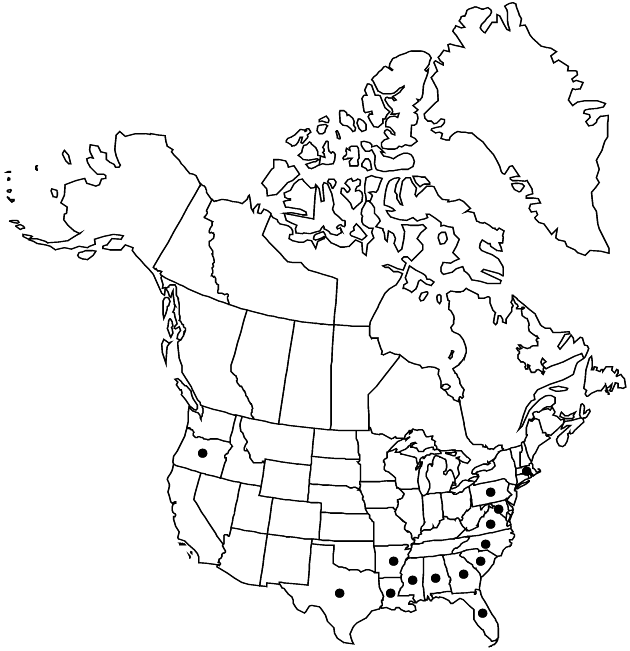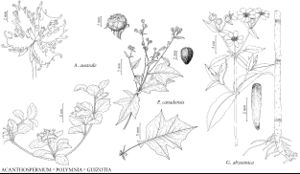Difference between revisions of "Acanthospermum australe"
Revis. Gen. Pl. 1: 303. 1891.
Basionym: Melampodium australe Loefling Iter Hispan., 268. 1758
Treatment appears in FNA Volume 21. Treatment on page 37.
FNA>Volume Importer |
FNA>Volume Importer |
Revision as of 18:49, 24 September 2019
Plants 10–60(–120+) cm. Stems ± procumbent. Leaf blades deltate to ± rhombic or ovate, 13–37 × 7–32 mm, faces sparsely scabrellous to glabrate or glabrescent, gland-dotted. Fruits plumply ellipsoid to fusiform, weakly compressed, 7–9+ mm, 5–7-ribbed, lacking terminal spines, prickles ± uncinate, mostly along ribs. 2n = 22.
Phenology: Flowering year round, mostly Jul–Aug.
Habitat: Disturbed, often sandy sites
Elevation: 0–300 m
Distribution

Ala., Ark., D.C., Fla., Ga., La., Mass., Miss., N.C., Oreg., Pa., S.C., Tex., Va., South America, also introduced in Mexico, West Indies, Central America, Europe, Asia, Africa, Pacific Islands (Hawaii).
Discussion
Reports of Acanthospermum xanthioides (Kunth) de Candolle from New York are evidently based on specimens of A. australe.
Selected References
None.
Lower Taxa
None.
